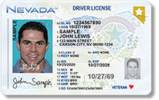Tax plan has miles to go before it’s passed
You can certainly understand the frustration behind The Education Initiative, a ballot measure to create a 2 percent margins tax on businesses in Nevada.
Nevada’s schools don’t graduate nearly as many students as they should, and not enough of them go on to college. Performance on standardized tests lags, and in some cases threatens the ability of students to graduate. Teachers are not paid enough for what they do.
And the Nevada Legislature has steadfastly refused to take up the idea of a business income tax – in the good times, they said, there was no need, and in the bad times, they said it would hurt business too much.
So the state AFL-CIO, under indefatigable Executive Secretary Treasurer Danny Thompson, started working on a tax initiative to take the issue directly to the voters, an idea that was attacked by establishment types in Carson City. They said it’s a terrible way to make tax policy, and the unions ought to seek relief in the Legislature. You know, where they’ve been rejected time and time again.
Thus, the AFL-CIO and the Nevada State Education Association – the teachers union – joined to file the initiative Wednesday. But that’s not the end of the story. There are plenty of hurdles still to overcome.
First, the inevitable legal challenges: The petition’s description of effect says “revenues from the tax would be deposited in the State Distributive School Account in the State General Fund, and used for the support of K-12 education.”
But while the initiative does direct the state Tax Department to deposit the money into the Distributive School Account, it can’t guarantee the additional revenue will be spent on schools. Nothing would prevent the Legislature from, say, reducing the amount of general fund money it spends on schools in an amount commensurate to the new tax, thus leaving school funding at the same level it’s at now. (The unions were rightly worried that earmarking the funds for education would run afoul of the rule that limits initiatives to a single subject.)
But that means an enterprising attorney could argue the petition’s description of effect is misleading, forcing it be re-written. That’s undoubtedly why the unions are waiting to start gathering signatures until a judge has heard the challenges.
Then there are the signatures: The petition needs 72,324 registered voters to sign off by November. Although two statewide organized labor outfits should be able to pull it off, it’s not a lot of time.
If the petition qualifies, it will go to the Legislature, where it must either be approved or rejected in the first 40 days of the 2013 session. It’s not likely to get approved, which means it would automatically go before voters in November, 2014. But lawmakers also have the option of putting a competing measure alongside it on the ballot, so the potential for mischief is high.
Assuming it goes unmolested on the ballot, there’s the inevitable campaign. The Nevada Policy Research Institute started to work almost immediately, claiming a similar tax has faced problems in Texas, and that it could even tax unprofitable businesses. Those charges will have to be addressed.
(The legacy arguments against it – that it will send businesses packing, cost jobs and raise prices – are all easily rebutted. The states surrounding Nevada have business income taxes, and they all have more businesses, lower unemployment and roughly equal prices for goods.)
But if it survives the courts, the Legislature, and the ballot, it’s entirely possible that, in January 2015, Nevada may at long last join the vast majority of states that tax businesses for the purpose of supporting education. But make no mistake: There’s a long way to go between now and then.
Steve Sebelius is a Review-Journal political columnist and author of the blog SlashPolitics.com. Follow him on Twitter (@SteveSebelius) or reach him at 387-5276 or SSebelius@reviewjournal.com.


















